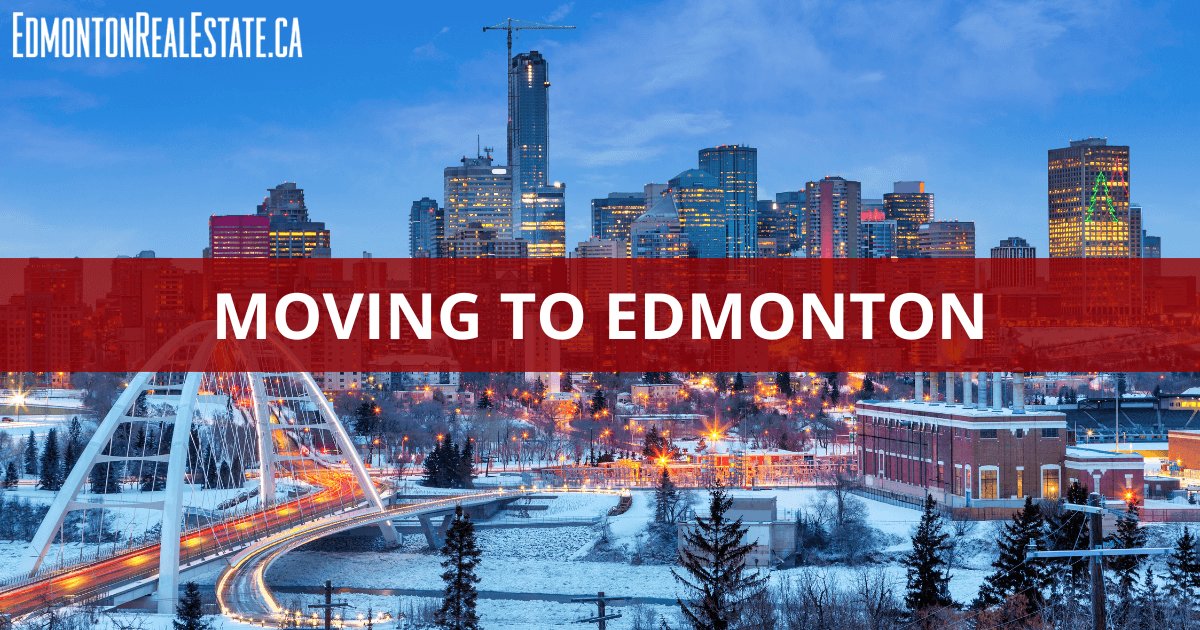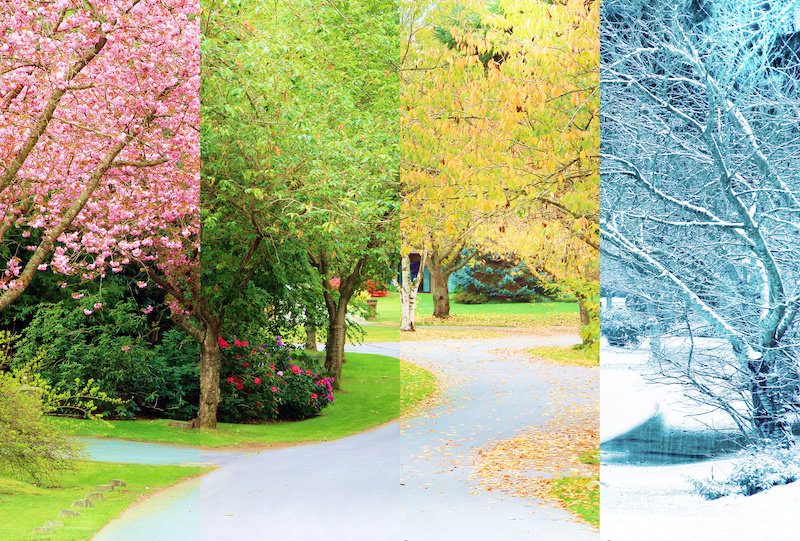Moving to Edmonton: Edmonton, AB Relocation & Homebuyer Guide
Posted by EdmontonRealEstate .ca on Tuesday, May 16th, 2023 at 10:40am.

The city of Edmonton is the capital of Alberta and is known for being large. From having North America's largest shopping mall and Canada's largest historical sights to being the second-largest city in the province and fifth-largest municipality in the country, Edmonton lives up to its reputation.
The city offers a hustle-and-bustle lifestyle downtown, but residents can easily escape to nature parks that offer a slower pace. Just like its population, the Edmonton economy is quickly growing. Residents can enjoy numerous activities throughout the year and still find something new to do. The city is well-positioned to suit the needs and tastes of residents of all ages. If you are looking for predictable weather and new adventures, Edmonton is a great place to live. Here's everything you should know before moving to Edmonton.
7 Reasons to Live in Edmonton
There are too many reasons to count for why residents love calling Edmonton their home, but here are a few to get you started:
- A vibrant arts and culture scene thanks to all of its museums, theaters, and galleries.
- Natural beauty is everywhere you look, from the North Saskatchewan River to the nearby Rocky Mountains.
- A strong and diverse economy that offers employment in industries from oil, gas, and mining to business services.
- Compared to other large cities in Canada, Edmonton has relatively affordable housing.
- Sports fans love being able to cheer on teams like the Edmonton Oilers and Edmonton Elks.
- Residents enjoy plenty of sun in Edmonton—only Calgary averages more sunny days in the entire province.
- A robust public transportation system lets residents get to work and recreation with ease.
Cost of Living in Edmonton
The cost of living in Edmonton is slightly higher than that of other cities in Canada. The province of Alberta is 7% higher than the Canadian national average, and Edmonton has a cost of living that is 9% higher than the rest of the country. The largest factors in the cost of living difference are housing and entertainment. Otherwise, the remaining cost of living index factors are on par with the rest of the province.
Nearly 75% of residents own their homes in Edmonton. The median home price is around $400,000, while condos are selling for about $200,000.
With just over 25% of residents renting in Edmonton, few apartments are available on the market for rent—the vacancy rate at around 4.3 percent. The median rent is about $1,100, but the monthly rent largely depends on the size of the unit/home and the location. Studios can be found for roughly $850, while two-, three-, and four-bedroom apartments and homes range from $1,400 to $2,100 per month.
Despite having a slightly higher cost of living, Edmonton is considered one of the most affordable cities in Canada. This is largely due to the province of Alberta having the lowest tax rates in the nation. The tax rates for Alberta can be found below:
| Alberta Personal Tax Rates | |
| Up to $142,292 | 10% |
| $142,292 to $170,751 | 12% |
| $170,751 to $227,668 | 13% |
| $227,668 to $341,502 | 14% |
| $341,502 and up | 15% |
Information via TaxTips.ca
Most residents fall into the first tax bracket in Edmonton because most salaries fall between $60,000 and $75,000.
More information about cost of living in Edmonton:
Edmonton Job Market
The number of companies that have grown in Edmonton or opened their doors in the city has grown over the past decade. Many of the largest businesses in the area have over 1,000 Edmonton residents on their payroll.
The Government of Alberta is headquartered in Edmonton, and it's the single largest employer in the area. Over 29,000 individuals work in the government's many departments. From policy implementation to tourism, this entity helps keep Alberta moving forward year after year.
The City of Edmonton is the second largest employer in the area. Nearly 10,000 residents work for the city in its various departments. Just under 10% of the entire population of the city works tirelessly to ensure their community is functional and remains beautiful.
Large employers that are not connected to government agencies in Canada and hire large numbers of Edmonton residents include West Edmonton Mall Attractions, Workers Compensation Board, PCL Employees Holdings Ltd, K-Bro Linen Inc, Fountain Tire, Lilydale Inc., EPCOR, Chemco, Alcanna, and Alberta Health Services. All of these employers has at least 1,000 employees with most having double or triple that number.
Popular Industries in Edmonton
As the capital of the province, Edmonton is a large hub for industrial growth. Many industries can be found in the heart of downtown and the surrounding areas. Edmonton's key industries include food and agriculture, manufacturing, energy, and life sciences, and many other industries are also growing in the city. New businesses in these industries regularly open and hire skilled Edmonton residents.
More information about finding a job in Edmonton:
Things to Do in Edmonton
 Edmonton is home to some of the largest attractions in the nation and the continent, including the largest living history museum, largest historical park, and largest mall. Whether you are a history buff, outdoor enthusiast, or foodie, are always things to do in Edmonton. Most attractions are appropriate for all ages, as well.
Edmonton is home to some of the largest attractions in the nation and the continent, including the largest living history museum, largest historical park, and largest mall. Whether you are a history buff, outdoor enthusiast, or foodie, are always things to do in Edmonton. Most attractions are appropriate for all ages, as well.
Outdoor Activities
Mill Creek Ravine Park is known for its many different walking and biking trails, and it even has an off-leash area to let man's best friend run freely for a bit. Because Edmonton has long, snowy winters, area parks also often offer wintertime activities such as skiing, sledding, and an outdoor warming fire to relax near.
Restaurants, Breweries, and Bars
The city of Edmonton is home to restaurants that feature cuisines from all over the world. Chefs have creative freedom to develop the very best dishes that take residents' taste buds for a journey. Whatever cuisine you desire, there is a restaurant that serves it. Locals or Edmonton's tourism leaders can help point you in the right direction.
Edmonton is home to Alley Kat Brewing Company, which is the fourth oldest brewery in Alberta. Those who enjoy a wonderful craft beer can take part in the Explore Edmonton Brewery Pass. It features stops at all of Edmonton's top breweries and allows residents to enjoy a number of new beers they may not have previously tried.
There is no shortage of bars in Edmonton. From establishments serving the finest aged spirits to dives with the cheapest drinks in town, residents can find the spirits and atmosphere that fit both their taste and budget.
Nightlife
Edmonton is home to numerous nightlife options. For those who love dancing, the Alibi Ultra Lounge is a chic nightclub with a modern-industrial decor that features multiple full-service bars, a partnered kitchen, an elevated DJ booth, and more. For those looking to escape for a night of fun, this is the place to do it. Whether you want to dance the night away with friends or enjoy an evening of fine arts, downtown Edmonton can deliver.
Edmonton Climate
 July is typically the warmest month of the year with temperatures averaging 18 °C, while January is typically the coldest month with average temperatures of -10 °C. Edmonton often has a breeze with a speed that ranges from 10 to 15 km per hour. Edmonton's warm season typically spans from mid-May to mid-September, while the cold season spans from mid-November to early March.
July is typically the warmest month of the year with temperatures averaging 18 °C, while January is typically the coldest month with average temperatures of -10 °C. Edmonton often has a breeze with a speed that ranges from 10 to 15 km per hour. Edmonton's warm season typically spans from mid-May to mid-September, while the cold season spans from mid-November to early March.
Edmonton is normally a bit humid, but not enough to be uncomfortable for most people. Contrary to what most people expect from Canadian cities, Edmonton is quite sunny. On average, it gets 2,345 hours of sunshine per year. It also gets 123.5 centimetres of snowfall and 45.5 centimetres of rainfall. July is the wettest month of the year, though January gets the most snow.
More information about the climate in Edmonton:
Edmonton Traffic
The city of Edmonton has grid system roadways, which means streets run north and south or east and west. Some streets do not follow this system, but these are only found in neighbourhoods. Main roads are incredibly easy to navigate, and the system even has a numbering system that compliments the grid system. Numbered streets run north and south, and the number of the street increases as you go west (e.g. 102nd Street is west of 101st Street). Numbered avenues run east and west, while the number of the avenue increases as you go north (105th Avenue is north of 104th Avenue).
Rush hour in the morning typically falls between 7:00 a.m. and 9:00 a.m., and evening rush hour occurs between 2:30 p.m. and 6:00 p.m. During the year, sunlight may not be available toward the end of evening rush hour, so drivers should take extra precautions.
Those who are new to driving in snow should avoid the freeways until they are comfortable driving in those conditions. Keep in mind there are no passing lanes within the city of Edmonton, but there are passing lanes on freeways. Stay in the lane that is most comfortable while you are in the city.
Alternative Routes
The city of Edmonton conducted research and determined the 10 busiest roads in the city. They include:
- 63 Avenue, 99 Street to Calgary Trail
- 90 Avenue, 75 Street to 83 Street
- 142 Street, 118 Avenue to Yellowhead Trail
- 106 Avenue, 97 Street to 116 Street
- 111 Avenue, 163 Street to 170 Street
- 124 Street, 111 Avenue to 118 Avenue
- 18 Street, 153 Avenue to 167 Avenue
- 23 Avenue, 184 Street to 199 Street
- 178 Street, Callingwood Road to 69 Avenue
- 195 Avenue, Meridian Street to Manning Drive
Fortunately, Edmonton's grid system means drivers can simply take another road that runs north/south or east/west to avoid them.
More information about traffic in Edmonton:
Public Transportation in Edmonton
With its bustling downtown, there are numerous public transportation options in Edmonton. These options include transit, taxis, and electric scooters. Edmonton has improved its safety over the years for pedestrians and cyclists. Above and below-ground walkways are available to protect those moving from one building to another. Additionally, the city has implemented over 200km of trails to allow cyclists easy access in and out of downtown.
The Edmonton Transit offers numerous bus and light rail services. With 15 stops around the city, the light rail ensures commuters get to their destinations quickly. Fares vary by the day and number of stops for both the bus and light rail services.
Taxi cabs are available around the city from numerous companies. Those who wish to travel in more style do have the option of requesting a limousine instead. If taxis are not available, residents can use the bike or electric scooter sharing program to get around town. Residents pay by the minute to use these scooters and can return them to any charging station around the city.
Schools in Edmonton
 Edmonton Public Schools operates 213 schools year-round. This district is the second-largest district in the entire province. Over 104,000 students receive kindergarten through 12th-grade education every year. Families have the option to zone their children for any of the elementary, junior, and high schools in the area. Class sizes depend on the school but typically range from a student to teacher ratio of 13:1 to 20:1.
Edmonton Public Schools operates 213 schools year-round. This district is the second-largest district in the entire province. Over 104,000 students receive kindergarten through 12th-grade education every year. Families have the option to zone their children for any of the elementary, junior, and high schools in the area. Class sizes depend on the school but typically range from a student to teacher ratio of 13:1 to 20:1.
Other schools in Edmonton include private and charter schools, along with nearby university campuses like the University of Alberta.
Why You Should Move to Edmonton
Edmonton residents enjoy a variety of benefits provided by the city. The range of restaurants and activities available is hard to find elsewhere in the province. Few other cities in the nation can even compete with what Edmonton can offer. The weather is predictable, and Edmonton is one of the sunniest cities in all of Canada. The snow and cold are the same as you would find throughout Canada without any of the humidity you may find in other cities. Edmonton truly is one of the best cities to reside in the nation.
If you're looking for the perfect Edmonton home, contact EdmontonRealEstate.ca in partnership with Justin Havre at (780) 800-9644 to get in touch with a local Edmonton real estate agent and discover your new dream home today.

